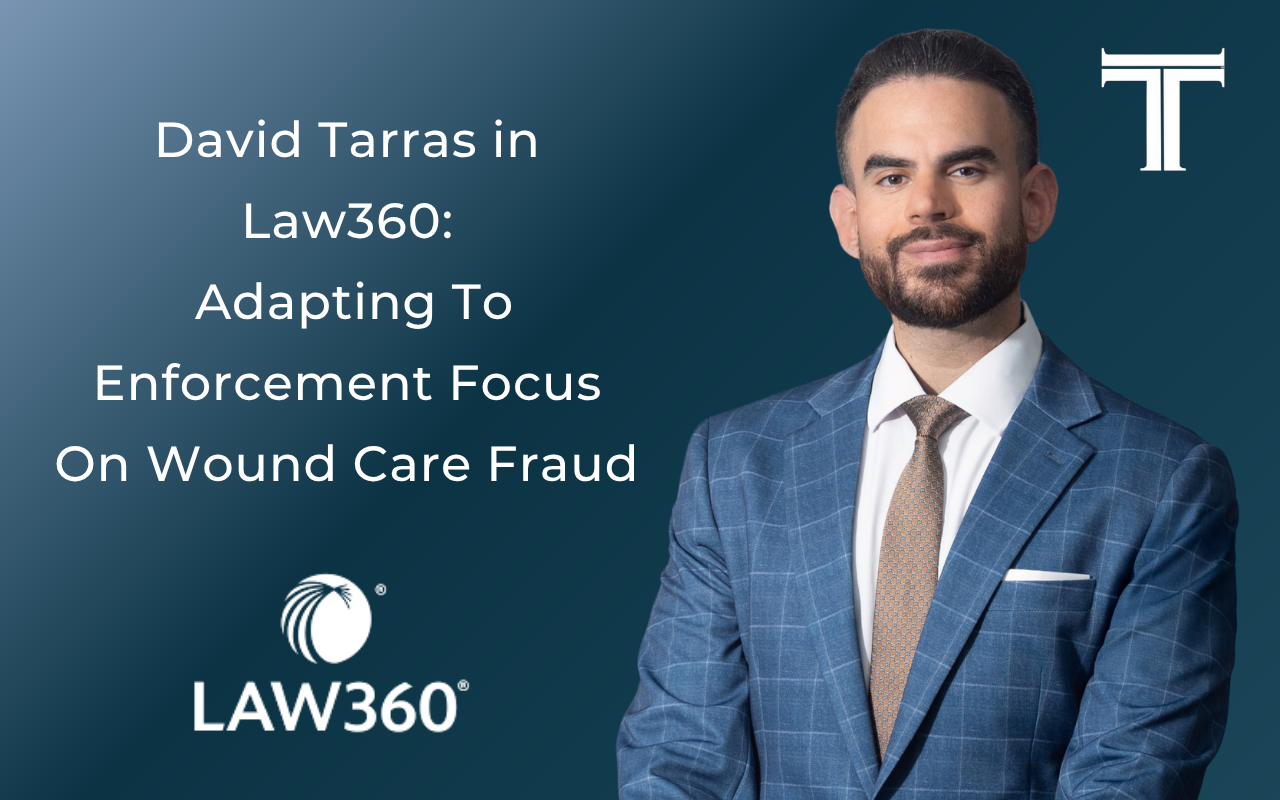Law360 Article published in collaboration with Jay McCormack, Partner at Verrill Dana LLP on October 29, 2025
The DOJ’s Expanding Focus on Wound Care Fraud
Federal enforcement agencies are intensifying their focus on Medicare and Medicaid billing for skin substitutes and amniotic wound care grafts — a sector that has seen explosive growth and mounting abuse. In 2025, the Department of Justice (DOJ) announced the largest healthcare fraud takedown in history, charging more than 300 defendants in schemes involving more than $14 billion in intended losses.
A striking number of these prosecutions involved wound care clinics, home health providers, and distributors using expensive skin substitute products in ways that regulators say were medically unnecessary or improperly billed. The DOJ and the Office of Inspector General (OIG) have made clear that this area will remain a top enforcement priority.
What Is Driving These Investigations
Medicare Part B spending on skin substitutes increased by more than 600% between 2022 and 2024, reaching nearly $3 billion per quarter. Investigators have linked this surge to aggressive marketing practices, vendor-directed treatment models, and a lack of oversight in home care settings where billing is often four times higher than in clinics.
The OIG has warned that the current reimbursement system creates incentives to bill for excessive quantities and to use the most expensive products available. Cases have revealed billing for skin grafts larger than the wound itself, kickbacks from distributors, and claims filed by providers outside their scope of practice.
Why Providers Are at Risk
Healthcare professionals working in wound care, home health, or durable medical equipment (DME) sectors may face investigation—even when they had no intent to commit fraud. Because the DOJ now uses advanced data analytics and predictive algorithms to flag anomalies, a provider can become the target of an audit or criminal inquiry based solely on billing trends or statistical outliers.
Typical red flags include:
- High per-patient graft volume or unusually large graft sizes
- Repeated use of new or short-lived products
- Same-day claims near the $99,999 Medicare cap
- Minimal documentation of conservative care before graft application
- Kickback exposure through sales or referral relationships
Once a provider or entity is flagged, the government can quickly expand its inquiry to include False Claims Act (FCA) and Anti-Kickback Statute (AKS) violations, creating serious criminal and civil liability risks.
How Tarras Defense Helps
As a former federal public defender who has handled complex healthcare and white-collar prosecutions across the country, David Tarras represents physicians, home health executives, and medical businesses facing federal healthcare fraud investigations. His experience includes early-stage intervention to prevent criminal charges, grand jury representation, and strategic negotiations with U.S. Attorneys’ Offices and OIG investigators.
Tarras Defense provides:
- Proactive defense in DOJ and OIG investigations
- Compliance reviews and internal audits for healthcare entities
- Representation in False Claims Act and qui tam matters
- Crisis management for providers, executives, and companies under scrutiny
Whether you are a wound care provider, medical distributor, or compliance officer, early legal representation can make the difference between an audit and an indictment.
Read the Law360 Analysis
In Law360 – Adapting to Enforcement Focus on Wound Care Fraud, David Tarras and Jay McCormack provide a detailed analysis of the DOJ’s coordinated campaign targeting wound care fraud, including insights into current enforcement trends, the data behind rising Medicare costs, and what healthcare attorneys should advise their clients to do now.
Download the article: Law360 – Adapting To Enforcement Focus On Wound Care Fraud

